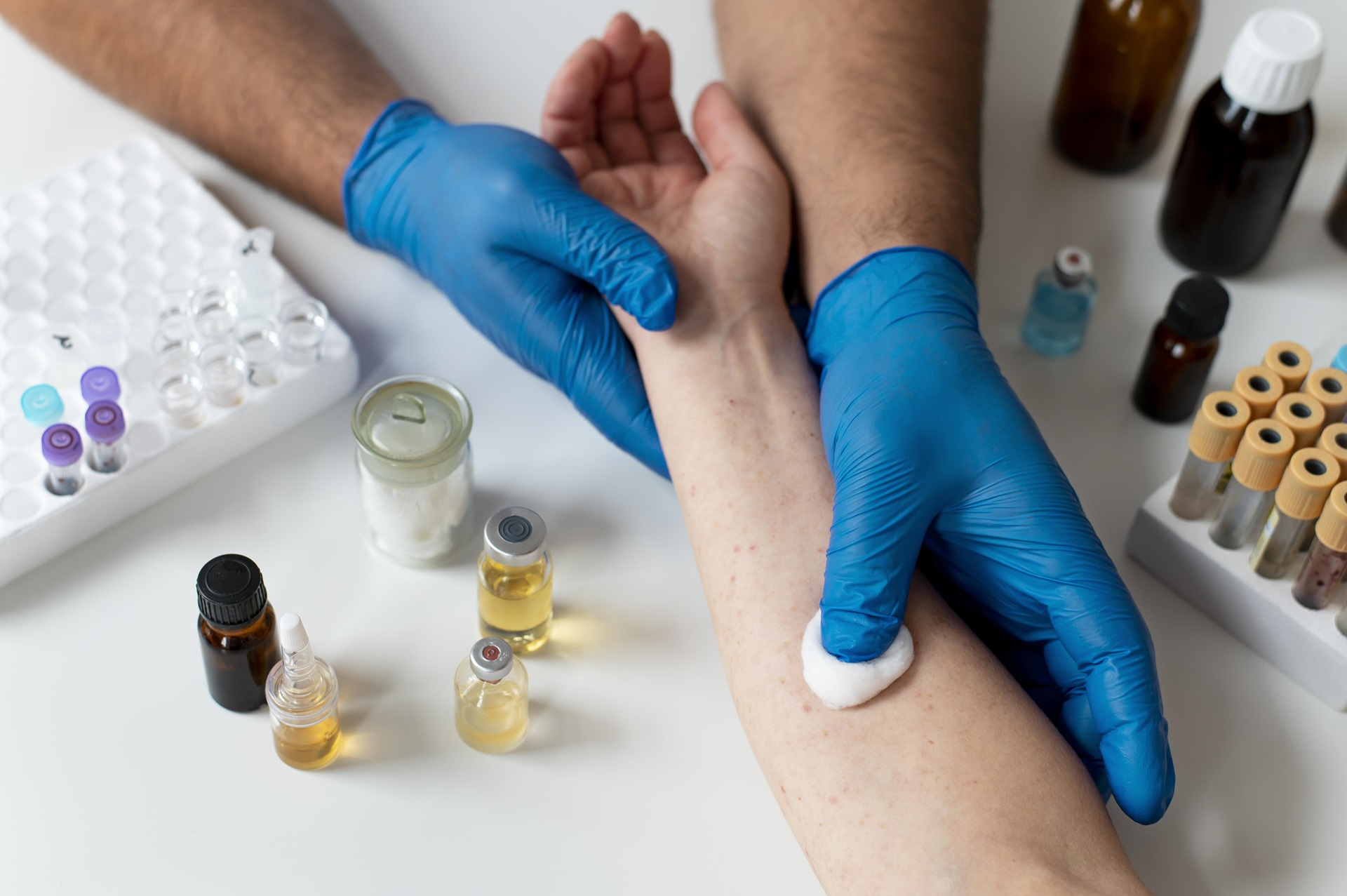Serum immunoglobulin E (IgE) test
Immunoglobulin E (IgE) is a specific type of antibody produced by the immune system. These antibodies are proteins that are important to protect the body from harm. Your body makes diverse forms of IgE, each directed at a specific substance that triggers an immune reaction in your body.
The total IgE test quantifies the level of IgE antibodies in the bloodstream and is the sum of all variations of IgE. However, it does not identify the particular forms of IgE that were detected.
Serum IgE testing aids in the diagnosis of various health conditions, such as specific infections and immune disorders. Additionally, it is valuable in determining the appropriate treatment for individuals with asthma that is caused by an allergy.
Purpose of IgE testing
The main purpose of performing a serum IgE test is to quantify the concentration of IgE antibodies found in the bloodstream. This test is primarily used for diagnostic purposes as well as to help make treatment decisions.
The diagnosis process involves finding out what is causing the symptoms. Many factors can affect the serum IgE levels, so it is not enough to depend only on IgE testing for a diagnosis.
A serum IgE test can be of help in diagnosing certain diseases that can display abnormal total IgE levels, such as:
- Parasitic infections
- Allergic bronchopulmonary aspergillosis, an immune response triggered by a specific type of fungus (Aspergillus fumigatus) affecting the respiratory system
- Specific immune system disorders or immune system-related cancers
- Anaphylaxis
- Allergic rhinitis (hay fever)
- Allergic conjunctivitis
- Asthma
- Chronic rhinosinusitis
IgE tests are also valuable in identifying whether a patient has an allergy to a particular protein, such as:
- Types of food allergy (eg, peanuts)
- Dust mites
- Grass, tree pollens, or weed
- Animal fur or dander
- Certain drugs and cosmetics
- Molds
- Bee or wasp venom
Planning a treatment approach includes deciding how to treat a patient in the best way possible. In individuals suffering from asthma triggered by allergies, an allergy-specific comprehensive IgE test may be used to determine the potential effectiveness of certain treatment options.
What does this test measure?
There are two different types of serum IgE tests:
A total IgE test: This test is used to measure the total number of IgE antibodies present in your blood.
A specific IgE test: This test is used to measure the IgE antibodies produced by your body in response to a single allergen. Each allergen that might be causing your allergies is identified using a separate allergy test.
Test procedure
A healthcare provider will take a blood sample from a vein in your arm. To help locate your veins, the healthcare provider may tie a band around your upper arm. After that, they will clean a small area of your skin with an antiseptic wipe. Then, they will gently insert a needle into your skin and collect a small amount of blood. Finally, the blood sample will be sent to a laboratory for analysis.
Interpretation of IgE test results
A total IgE serum blood test gives you the concentration of immunoglobulin E in your bloodstream. Generally, lab reports show the test result with a reference range. This reference range is based on the analysis of the results of tests performed on a large population, and these values serve as a guide to the expected levels of total IgE in healthy individuals.
The interpretation of your test results takes into consideration your general health condition, along with any symptoms you may be experiencing. Although total IgE levels can be indicative of certain conditions, this test alone is not usually conclusive for making a diagnosis. Therefore, it is essential to consult your healthcare provider to understand your test results.
|
IgE test |
Reference interval |
|
Normal IgE level Adults |
150-1000 UI/mL, but the accepted upper limit of IgE is 300 UI/ml |
|
High IgE levels Adults |
150 kU/L |
Normal IgE levels by age
|
Results reported in kU/L |
|
|
Age |
Reference interval |
|
0-5 months |
≤13 |
|
6-11 months |
≤34 |
|
1 and 2 years |
≤97 |
|
3 years |
≤199 |
|
4-6 years |
≤307 |
|
7 and 8 years |
≤403 |
|
9-12 years |
≤696 |
|
13-15 years |
≤629 |
|
16 and 17 years |
≤537 |
|
18 years and older |
≤214 |
Elevated levels of serum IgE can be caused by a number of medical conditions
- Total immunoglobulin E (IgE) concentrations may be elevated in a number of clinical diseases, such as allergic disease, some primary immunodeficiencies, infections, inflammatory diseases, and malignancies.
- Increased IgE levels are occasionally linked to parasitic infections.
- Consistently elevated total IgE concentrations, along with other required additional tests, can also indicate allergic bronchopulmonary aspergillosis.
The serum IgE test is used to measure the concentration of immunoglobulin E in the blood, which helps determine whether there are any allergy or hypersensitivity issues. An elevated level of IgE could imply allergic reactions to specified irritants like pollen, food, and/or animal dander. The results from the serum IgE test are useful in the diagnostic process and to effectively manage conditions such as asthma and eczema since they give direction on treatment plans that can lead to improved treatment outcomes for patients.


